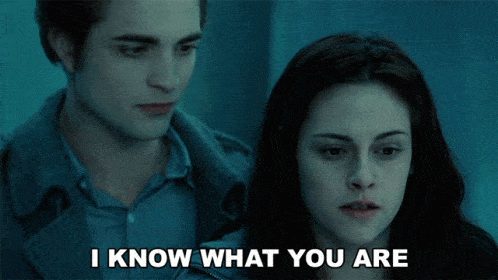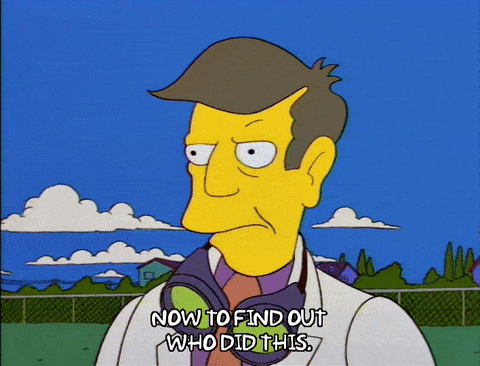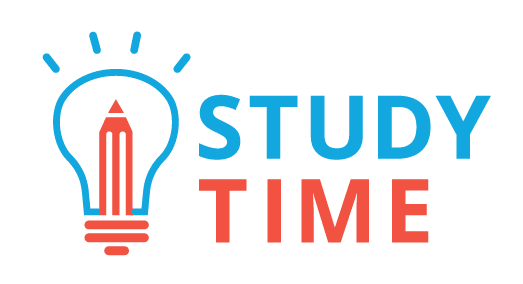In an age where information can be spread so easily, as GC’s (good citizens), we need to all be confident in knowing that what we’re reading is true. It’s never enough to simply accept that everything we see is totally factual, because a lot of the time, it isn’t.
Not to mention, most NCEA subjects rely on us to think critically in some way or another. While history students need to be able to evaluate biased perspectives, science students need to know if the research they’ve got for their latest internals is actually useful.
Basically, if any of your subjects have ever required you to Google something, they need you to think critically.
Naturally, you might be wondering, what actually is critical thinking? Or better yet, how do I get good at it? Luckily for you, StudyTime has broken down what “critical thinking” really means, where we use it in our real lives, and how we can do it better.
Defining critical thinking
Before we get into how we can be the best critical thinkers out there, we need to make sure we’ve got a clear idea of what critical thinking really means.
Critical thinking is defined as the ability to evaluate the media we consume, whether that’s research for school or what we see on the news, and make a judgement about it. Monash University breaks critical thinking down into four key components:
- Questioning skills
- Analytical skills
- Evaluation skills
- Synthesis skills
These are the key aspects that ultimately make up our ability to make a judgement about things.
Let’s put this into context. Imagine that you have an internal for your class that requires you to do some research and write a report. I’m sure most of us will have been here before.
During your research, you stumble across a dodgy website that looks like it was made in 2007, and is riddled with spelling errors. When you start to read the text, it doesn’t match up with any of your other sources. You realise straight away that this source isn’t reliable, and that you should not believe what it’s saying without doing further research.
That’s using your questioning skills!
Fortunately, you go on to find many more sources that are written by reputable authors. Once you’ve read information from a few sites, you can start to link concepts from different writers together, and they all seem to be supporting each other’s ideas. You realise that the information must be valuable, because all of these well educated and qualified people are endorsing it.
A+ for analytical skills.
However, there are some aspects that other well educated people are disagreeing with. Based on what you’ve learned so far, you tend to agree with both sides to the argument, and you think the “right answer” is somewhere in the middle.
This is some great evaluation on your part.
When you go to write your final report, you mix together lots of ideas from reputable sources. You also make it clear that you aren’t just believing one of your sources 100%, but instead, you have taken inspiration from lots of places.
Finally, your synthesis skills have gotten you an excellence on your internal.
All of these skills make up critical thinking.
Okay, but is critical thinking such a big deal in the real world?
Absolutely! Critical thinking plays a huge part in everything, from how we interact online to how scientists make life-changing discoveries.
Critical thinking and the Internet
The Internet is a wonderful place, but it can get really weird, really fast.
Let’s start with TikTok. We don’t know if you heard, but a couple years ago, TiKTok saw a rise in grown men who tried to convince people on the web that they were vampires. They did this through some (clearly edited) clips of them jumping over cars, as well as some videos of them showing off “fangs” that were just a Snapchat filter.
Since these videos ended up reaching a relatively young audience, the comments section was filled with people shocked that vampires existed. We don’t know if this is meant to be common knowledge or not, but yeah, vampires aren’t real. That, guys, is why critical thinking is so important.

Jokes aside, not thinking critically about what we see on the ‘net can have a big effect on our mental health.
To many of us, it’s no surprise that everybody from makeup companies to social media influencers retouch their images a lot. In fact, we see flawless complexions and perfectly proportioned figures so much in the media, that we usually just accept it as the new normal.
This is where we have to try a bit harder to think critically. While it can be hard, we need to remember that only people with a makeup crew and Photoshop team can fit society’s definition of perfection all the time. We can’t just see Kylie Jenner’s latest post and accept that we’re a failure because we don’t look like that, we need to realise that our worth is not defined by how Facetuned we are.
Phew, that got deep. Let’s do a total 180, and think about critical thinking in a very different context.
How critical thinking affects our health
We know that heading sounds wild, but hear us out – our health relies on people who have thought critically.
Ignaz Semmelweis might not be much of a household name, but he did do some excellent critical thinking back in the mid 1800’s. Ignaz was working as a doctor during this time, and as he worked, he realised that a lot of doctors around him were not sanitising their hands after performing procedures on dead patients.
Ignaz, being a critical thinking legend, realised that the same doctors who performed those procedures always ended up making their living patients sick. He put two and two together, and came to the conclusion that washing your hands after fumbling around in dead people is a top-notch idea.
While we’re all very, very used to washing our hands, the people of the 1800’s were not, and Ignaz’s discovery made hospitals everywhere so much safer. Without him using his analytical and evaluation skills, we would know so much less about infectious diseases, and our health would pay the price.
Fast forward to the 2020’s, and health discoveries are being made nonstop. New remedies are coming out, and we need good critical thinkers to evaluate how effective our treatments really are. Our approach to public health is constantly adapting to get better, all thanks to critical thinking.
How to become a better critical thinker
Now that we know how to think critically, and why it’s so important, we need to understand how we can improve our own skills.
Question your sources, and their incentives
Regardless of what subjects you study in NCEA, research always crops up somewhere. To get good research, we need to use good sources. While this is easy to say, it can be hard to spot what’s reliable. Here’s some good things to look for:
- The date the book, website, article, or artefact is from.
If we’re talking about an event that happened during history, information released close to the date of the event can be considered very good evidence, but should be complemented with later articles, too.
Meanwhile, in science, we’re always finding out new things. So, if you’re researching anything to do with medical or scientific discoveries, information should be as current as possible.
- The people responsible for the source.
Especially when looking at sources like books, articles, or videos, we have to consider the qualifications of the people behind it. For example, you’re more inclined to believe an article published by somebody with their PhD, rather than someone spouting off about conspiracy theories, who may not have even passed level 1 science.
Needless to say, always make sure you know where your information is coming from, because this has a big influence on how seriously you can take it.

- What’s their motivation for this?
This is one of the biggest questions you need to ask when looking at the person who created your source. Sometimes, scientists can be paid by companies to promote certain products, and this could be why so many dentists (9 out 10, even) promote Colgate.
On the other side of the spectrum, scientists who have articles ending up on websites that end in “.org” or “.gov” are hardly ever getting paid, they just want the work they’re proud of to end up in a cool science journal. Who would you trust more – someone wanting a paycheck, or someone who’s doing it because they care about sharing information?
Evaluate all of the arguments you read
When looking at a source, leave no stone unturned. Try to find any areas they might be deliberately leaving out, or if there’s anything that doesn’t make sense. If you can spot any dodgy areas, it might be best to find something else.
However, if the source seems watertight, aim to find other sources that support your original source’s ideas. Make sure that the supporting sources are still from qualified experts, and that they’re relevant to what you’re researching.
Finally, look at things from a different perspective.
Honestly, this is where things can get hard. If we’re only researching from one side of the argument, we can get stuck down a rabbit hole of taking everything at face value. This is not what critical thinking is about.
Take the time to look up information from a different angle, and see what parts you agree and disagree with. You should put your evaluation skills into practice, and form conclusions that go along the lines of, “I understand X and agree with Y, but I still don’t agree with Z”. Doing so will give you a much better understanding of the subject, and will make your own argument that much stronger.
Don’t be afraid to debate
We aren’t saying you need to hop on your school’s debating team ASAP, but engaging in a bit of back and forth with your peers is never a bad idea. This is especially useful if they have different opinions to you.
Debating ideas is a great way to help understand other people’s perspectives, and can really broaden our understanding of a subject. Having people ask the hard questions about your stance on something can completely make or break your own opinions, which is good! Opinions and perspectives change as we learn more about a given topic.
To sum all this up:
Okay, so that was a lot. We know you guys are busy, so here’s the TL;DR.
- Critical thinking is all about seeing new information, questioning its validity, and making a judgement about it.
- We use critical thinking all the time, and it makes us better Internet users, report writers, and debaters.
- Good information sources come from qualified and educated experts, and we should always be able to find supporting evidence as well.
- The essence of critical thinking is being able to adapt your perspectives as you learn more stuff – you should never be too stubborn to change your mind.
Needless to say, critical thinking is the backbone of our society. From the way we write our NCEA internals to how our public health sector functions, we’d be nothing without it.

0 Comments